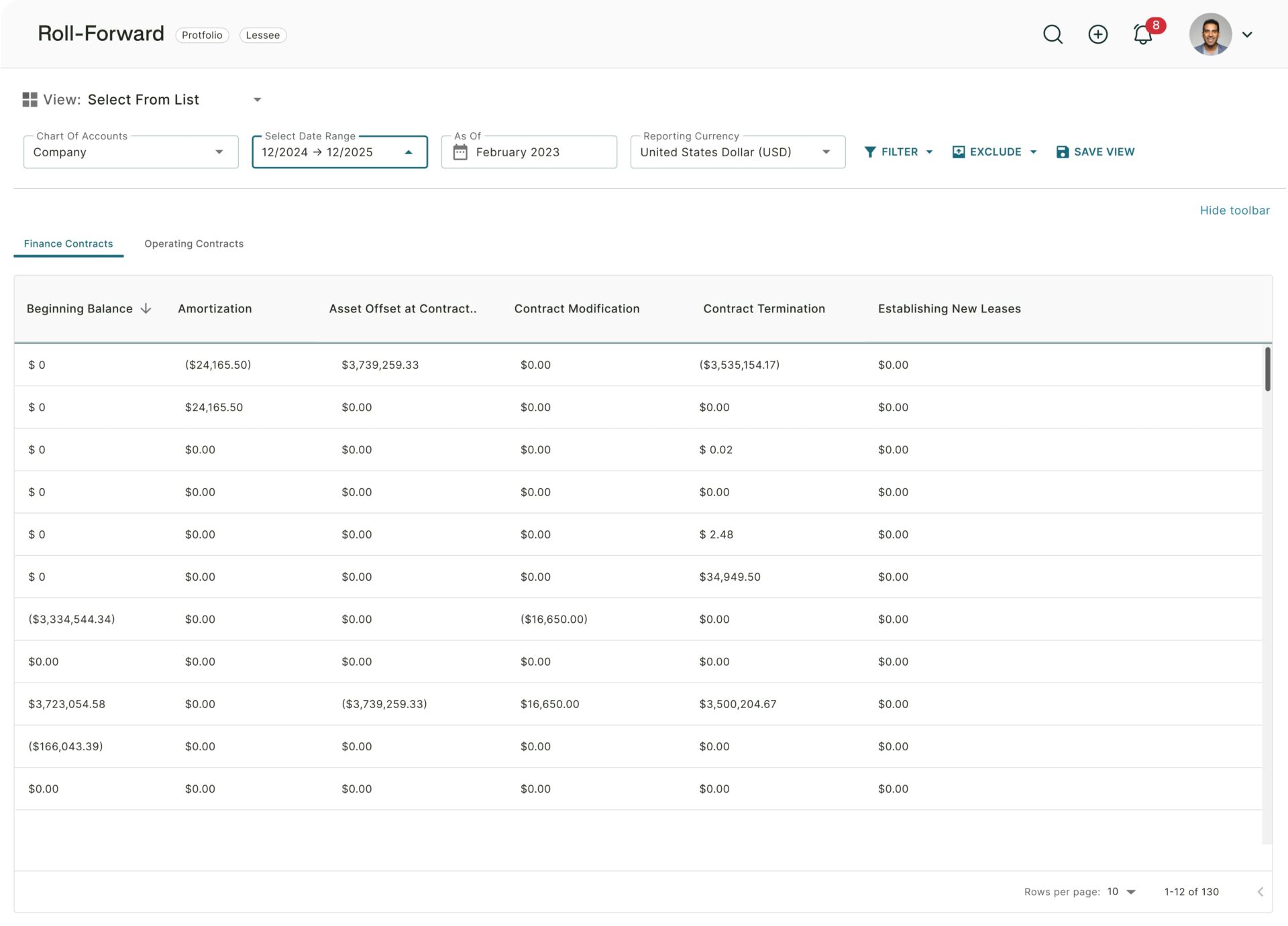Software platforms designed to manage lease accounting have grown leaps and bounds over the past few years – incorporating powerful AI-driven tools for data extraction, lease abstraction, and more. One of the most exciting developments is the emergence of agentic AI, which has the potential to transform the role of accounting.
Finance teams now have the opportunity to redefine how they work. But even the best software won’t deliver results without a strategic implementation plan. Here are the five most common mistakes finance and accounting teams make when adopting new software – and how to avoid them.
Mistake #1: Underestimating the complexity of financial data
ASC 842 and IFRS 16 have significantly increased the complexity of lease accounting. Many companies don’t realize how many leases they actually hold, often because they’re buried within contracts or not explicitly labeled as leases.
On top of that, any lease longer than 12 months – whether operating or finance – must appear on the lessee’s balance sheet as a right-of-use (ROU) asset and corresponding liability. This requires complex calculations and professional judgment for proper classification and reporting.
What to do. Before transitioning to new lease accounting software, take the time to clean and validate your data. It’s a classic garbage-in, garbage-out scenario. Ensuring your data is accurate and well-organized upfront will make lease identification, classification, and calculation far smoother – and far less error-prone.
Mistake #2: Overlooking change management and training
AI tools are powerful but unfamiliar. Accountants are known for being risk-averse, so the idea of adopting AI into their day-to-day workflows may feel especially daunting.
What to do. This is where change management comes in. Effective change management is key. Start by aligning stakeholders early on shared goals and clear milestones. This helps smooth the implementation process and reduces resistance from those attached to legacy systems. Organizations that fail to clearly communicate the why and how behind the change often face slow adoption – and even project failure.
Training is equally essential. While many AI tools are user-friendly right away, they also reward deeper engagement over time. Consider segmenting your team. Early adopters can be internal experts and champions for AI, leading the way in adoption. This approach builds confidence for the rest of the team and drives more momentum.
Mistake #3: Starting without a clear implementation plan
Beyond end users, the entire organization needs a clear, shared vision for how implementation will unfold. A structured, time-bound plan ensures transparency, enables effective resource allocation, and keeps all stakeholders aligned on the end goal.
What to do. Assign clear roles and responsibilities to those overseeing the implementation. Too often, the task falls to accounting staff already stretched thin with day-to-day responsibilities. Make sure these team members have dedicated time carved out to focus on the project.
As implementation progresses, allocate time for thorough testing before a full rollout. While it may be tempting to jump in and figure things out on the fly, allowing your team to test-drive the system first will help avoid costly missteps later.
Mistake #4: Choosing the wrong software
The market for accounting software has exploded. Companies are faced with an overwhelming number of choices – many of which may not meet the specific demands of lease accounting.
What to do. When evaluating software, focus on capabilities that directly support the complexities of lease accounting. Here are the key features to prioritize:
- Automation. ASC 842 and IFRS 16 introduce significant reporting burdens. Choose a platform that automates critical tasks such as data management, lease modifications, and IBR calculations to reduce manual effort.
- Integrations. Lease accounting doesn’t operate in a vacuum. The right platform should integrate seamlessly with your ERP, procurement, and financial systems to ensure smooth, automated data flow.
- Compliance readiness. Even years after ASC 842 and IFRS 16 came into effect, audit scrutiny remains high. Look for software that produces audit-ready outputs and reports that allow auditors to easily trace journal entries back to source documents.
- Flexibility and scalability. No two lease portfolios are the same. Ensure your software supports multi-entity environments, various lease types, and different currencies and languages. This is especially important for global organizations.
Mistake #5: Not vetting software vendors for service and support
Choosing lease accounting software isn’t just about features – it’s about forming a lasting partnership with a vendor. The level of service and support you receive can significantly impact your success and overall ROI.
What to do. Prioritize vendors with a reputation for responsive, high-quality support. Strong onboarding and implementation support can help you hit the ground running and establish reliable communication channels for troubleshooting and future updates. Fast, effective support minimizes downtime and keeps your team productive.
As AI technology continues to advance, you also need to trust that your software vendor will stay ahead of the curve. Otherwise, you risk needing to switch providers again in a few years. Companies that have a culture of innovation are going to stay on the leading edge, helping your firm adapt to the latest technology.
Conclusion: Set yourself up for success
AI-powered automation is transforming lease accounting, and firms that want to stay ahead need the right technology partner by their side. Switching to a new accounting platform comes with challenges and pitfalls, but with the right approach, your investment will definitely pay off.
Choose the right platform. Build a solid plan. Empower your team. And most importantly, work with a partner who’s invested in your long-term success. Firms that take implementation seriously will be well-positioned to move quickly and confidently in today’s evolving landscape.
Discover how Trullion makes your transition to AI-powered lease accounting successful.





